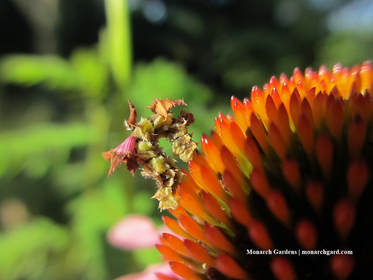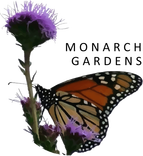1) Is this a native or exotic insect species? If exotic, is it pushing out natives? What role do those native insects play in the ecosystem compared to the exotic and what may or may not be lost as they are supplanted?
2) Is this a generalist or specialist species? Specialists are critical to the ecosystem and losing just one has a cascade effect that influences how well plants are being pollinated. Generalists, like bumble bees, will forage on just about anything. Also take honey bees: not only are they an exotic species that crowd out native bees and spread disease, they steal forage from native bees that native ecosystems (plants, etc) depend upon. That is partly due to their sheer volume, colony size, and range of several miles. A good number of native bees have a flight range of only a few blocks.
3) How is that adult pollinator using the plant? Is it foraging for nectar (fuel for itself) or pollen (essential food for its young)? What parts of the plant is it using (it's not just about the flower)? Is there evidence that any insect larvae are using the plant? Here we're commonly thinking butterfly and moth caterpillars, but also beetle larvae and much more will use the plant.
These are hard questions to answer, and if you can answer them you're now a bona fide backyard biologist who should be recording what you see to track how the climate and environment are changing. But simply, until we can answer these questions to some degree, our plants may not be as beneficial as we assume when we "see a pollinator" using it. It may very well be that the plant primarily supports insect species that are doing harm to other species, creating an unseen cascade effect that ripples out beyond the garden altering how nearby spaces function. If we can begin to understand that a garden is not its own self-contained place, but part of a larger whole, perhaps we will begin to ask harder, more honest, and more critical questions about what's using our garden and how we can improve the habitat so it's as pretty for wildlife as it is for us.



 RSS Feed
RSS Feed

